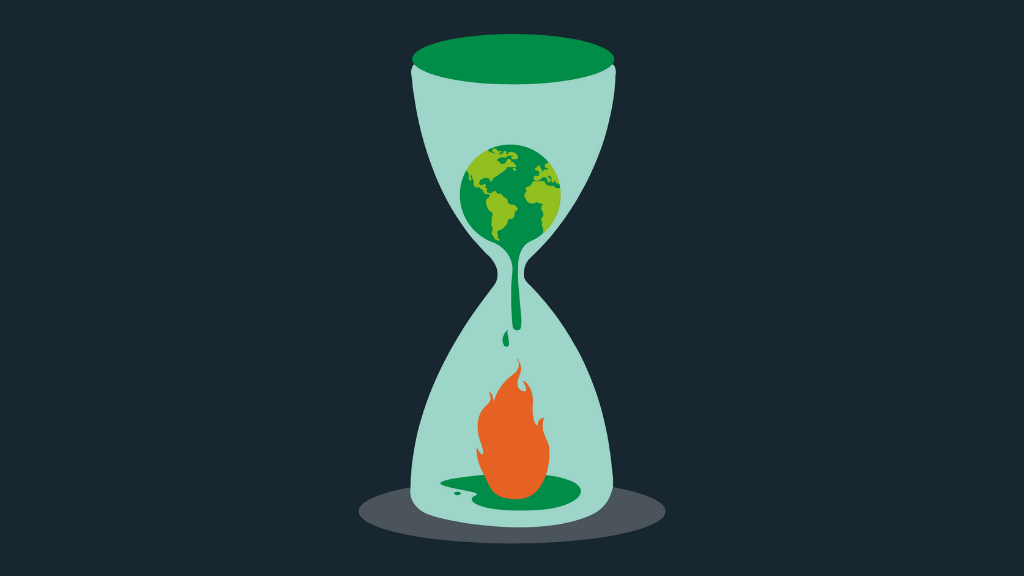Michael Lewis is a Professor in Operations and Supply Management in the School of Management, and a Member of the Centre for Sustainable Chemical Technologies, at the University of Bath.
The latest Intergovernmental Panel on Climate Change (IPCC) report or more specifically, the Working Group 2 (Impacts, Adaptation and Vulnerability) contribution to the IPCC Sixth Assessment Report, updated the ongoing assessment of the global and regional impacts of climate change on ecosystems, biodiversity, and humans. It also looked at vulnerabilities and capacities of the natural world and human societies to adapt to climate change.
In short it explores - in a dense and depressing way - the causes and consequences of climate change, and - more optimistically - reviews solutions to keep warming below 1.5C and adapt in the right way.
The bad news
After all the upbeat messaging from the 2021 United Nations Climate Change Conference (COP26) this study shows the scale and urgency of the task at hand. Even now, over 40% of the planet is "highly vulnerable" to the effects of climate change - places where people live and work are ceasing to exist; ecosystems are disappearing; and millions of people are exposed to food and water insecurity, especially in Africa, Asia, Central and South America, on Small Islands and in the Arctic.
Set against this backdrop, the report goes on to lay out some of the potentially worst news for the coming decades:
- Under all warming scenarios, a billion more people are at risk from coastal hazards. In addition to loss of life this also means risks such as costly damages, overwhelming insurance, relocation, community dislocation, and increasing inequality.
- Diseases are likely to spread more quickly, with the report making specific mention of mosquito-borne dengue fever reaching billions more people.
- There will be significant falls in agricultural output for large swathes of Europe.
- More than half of the global population live in cities, making them vulnerable to weather events such as urban heat islands, and extreme rain.
Critically, the report stresses the systemic character of the climate breakdown. A system is made up of connections and feedback between events, but climate change is creating new events, like permafrost thawing, which in turn create new connections and new feedback loops.
The report also highlights how wildfires, which already generate one third of ecosystem carbon emissions, will continue to increase with heating, causing accelerating feedback loops as further carbon is released. This will create compounding, non-linear outcomes that will become ever more difficult to mitigate.
The slightly better news
All of this means that accelerated action is urgently required to adapt to climate change, at the same time as making rapid, deep cuts in greenhouse gas emissions. The report stresses the need for investments in adaptation work - even if progress is uneven - but it is also rightly dismissive of expensive techno-fixes such as removing carbon dioxide from the air, stressing they could easily make matters worse (N.B. so-called Negative Emission Technologies [NETs] feature heavily in UK net zero plans).
This idea of unintended consequences from well-meaning interventions reinforces the need for a systems perspective to both understand and respond to the climate change challenge. Any narrow focus on single sectors, specific risks and short-term gains can make things worse.
For example, sea defences can create a false sense of security and increased exposure to climate risks in the long-term - unless they are integrated into a long-term systemic plan. Here the IPCC expresses high confidence in the economic and ecological feasibility of so-called “green infrastructure” - think of tree planting for cooling in urban areas, or wetlands moderating flood waters but also restoring ecosystems and conserving 30 to 50 per cent of the Earth’s land, freshwater and ocean habitats. This requires us to stop, as well as start, doing things - sometimes an even harder thing to achieve.
So what?
In short, we already knew that we needed to make significant adaptation, but the scale and speed of global emissions cuts will determine whether we can keep up with impacts of climate change.
There is a wide gap between what is happening now and what is needed, in terms of investment, planning and implementation - even though adaptation efforts now will be easier, more effective and of lower cost than delaying action. As the report stressed, the systemic nature of the challenge means that the effectiveness of adaptation measures will decline with increased warming. This creates a narrowing window of opportunity to act.
Unfortunately, this increasing urgency also introduces another challenge. Urgency can create all sorts of systemic ‘speed traps’. Speed compromises our ability to assume a critical attitude on decision-making, and the pressure to go fast feeds on itself, as key resources and people become ever more stretched, and leaders ever more focused on crisis management.
The most effective adaptation is integrated and coordinated across governance levels. We need to adapt infrastructure, but this won’t happen without a clear and comprehensive systems approach, with coherence across all areas of policy and consistent political commitment over time.
All articles posted on this blog give the views of the author(s), and not the position of the IPR, nor of the University of Bath.
Respond




